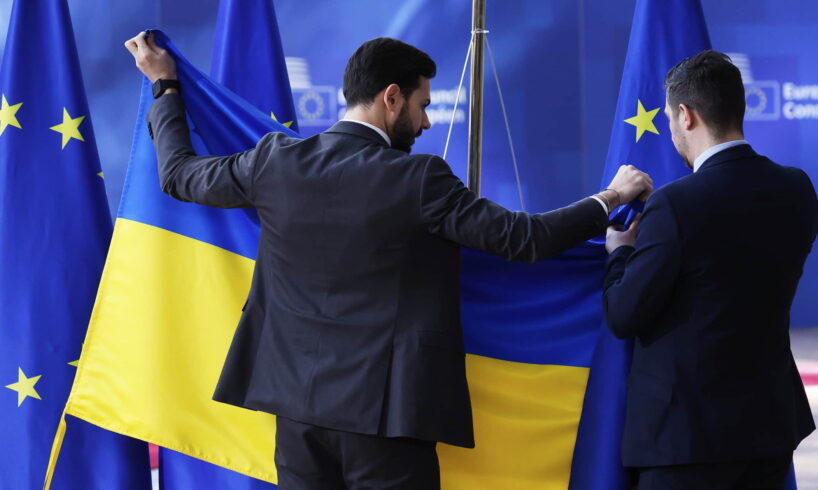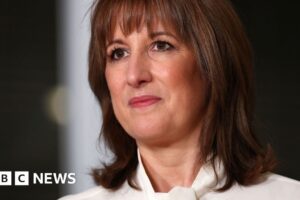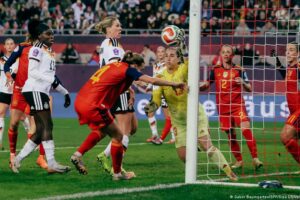
On 31 July, just after the Ukrainian Parliament had voted to restore the independence of the National Anti-Corruption Bureau of Ukraine (NABU) and the Specialised Anti-Corruption Prosecutor’s Office (SAPO), the foreign ministers of the EU member states received a message from their Ukrainian counterpart, Andrii Sybiha.
In a lengthy letter addressed to each minister individually, Sybiha repeatedly emphasised President Zelenskyy’s “decisive leadership” in protecting Ukraine’s anti-corruption achievements – and he had a friendly request to make. He asked his fellow foreign ministers to persuade the leaders of their states or governments to post public congratulations to Ukraine, and to Zelenskyy personally, on achieving this success in the fight against corruption.
Kyiv’s logic was clear. By then the President’s Office was aware that they had got Ukraine into a mess in terms of its relationship with the EU since their attempt to destroy the independence of the anti-corruption framework. So they set out to distance the president from these events and create an artificial image of him as a saviour.
The plan failed.
European Pravda monitored subsequent messages from European leaders and found only one who did as Kyiv had asked – Lithuanian President Gitanas Nausėda.
Indeed, according to EP, several of the ministers sent Sybiha a pretty clear refusal, reminding him that they were waiting for further steps to be taken, starting with the appointment of the head of the Economic Security Bureau of Ukraine (ESBU). The fact that Zelenskyy was not officially responsible for this was neither here nor there. The message – “We are not fools and we understand Zelenskyy’s real role” – was loud and clear.
The following morning, Sybiha contacted the demanding European capitals again to report that that problem had been resolved as well: Prime Minister Yuliia Svyrydenko was meeting with Oleksandr Tsyvinskyi (who had emerged as the winning candidate from the selection procedure for the head of the ESBU) and would shortly remove the obstacles to his appointment. Within hours, that information had been made public. Two days later, the government kept the promise Sybiha had made: the appointment took place.
These details of diplomatic dialogue are important in terms of understanding what is happening in the relations between Kyiv and its partners in the EU.
And most importantly, this has a decisive impact on how the president will be forced to structure his policy going forward.
To the EU? Only with Moldova!
Much has been written about how 22 July was a turning point in how Volodymyr Zelenskyy is perceived by part of the Ukrainian public and by Ukraine’s Western partners. That was the day the president, defying the unwavering advice of his partners and ignoring the spontaneous protests that broke out in central Kyiv and other cities, signed a law his office had initiated that attacked Ukraine’s anti-corruption framework.
After that, problems for Kyiv snowballed. Fortunately, the President’s Office was rather quick to grasp the consequences of the events of 22 July. Within the next two days, the president completely changed his tone, agreed to rescind all amendments affecting the anti-corruption framework, tolerated even the harshest criticism of himself, and went out of his way to show his readiness to make concessions.
The story of the dialogue with the Europeans after those amendments were repealed is very telling.
But why did Zelenskyy’s position change so abruptly? What convinced him?
European Pravda described one of the key reasons for the transformation as early as 23 July in our article on the consequences of passing the “NABU law”. At the time, analysts and European sources of EP alike agreed that amid the government’s attack on the anti-corruption bodies, rapid progress towards EU membership had become impossible.
Given the situation, the “decoupling” of Ukraine and Moldova on their path to EU membership seemed almost inevitable. It was a scenario that had long been discussed in Brussels, and the only thing that had prevented it was a reluctance to punish Ukraine.
Several European diplomats told us at the time that Kyiv had destroyed that safeguard itself.
This turned out to be a serious problem for Zelenskyy.
In the past two weeks, the president has talked with the leaders of more than a dozen European states, not only to try to convince each of them that Ukraine does intend to continue combating corruption and moving towards the EU, but also taking the time to stress separately that decoupling Ukraine and Moldova is unacceptable.
Moreover, Zelenskyy’s resistance to “decoupling” was one of the key topics recorded in the official summaries of conversations he had with the leaders of Poland, France, Denmark, Estonia, Latvia and Lithuania, though he has raised the issue with other leaders as well.
“It will be fair and just to open the first negotiation cluster for us and Moldova simultaneously.” “We agreed that the first negotiation cluster for Ukraine and Moldova should be opened at the same time. Ukraine and Moldova began this path together and must continue along it together.” These were among the quotes from Zelenskyy that were released after those conversations.
Why had this seemingly technical issue gained such importance that it crowded out topics as pressing as weapons supplies or the situation at the front?
This isn’t just about procedural details or competition with Chișinău on the road to EU membership any more. It is now about Zelenskyy’s political legacy and his only chance of creating a positive image for himself in Ukraine’s history.
Here are the reasons that justify coming to such a categorical conclusion.
“The history books” as motivation for the president
Before answering the question posed above, it’s worth briefly focusing on the issue of Zelenskyy’s political image.
The vast majority of analysts – whether they are inclined towards a positive assessment of Volodymyr Zelenskyy as a politician or are predisposed to be critical – agree that the concept of legacy carries exceptional weight for the current president of Ukraine.
Despite criticism of the current boss of the President’s Office and accusations that he is tolerant of political corruption, “cash” payouts to MPs, enrichment by his inner circle and so on, there is a near-total consensus that for Zelenskyy personally, his objective as president is not personal enrichment, not the financial outcome of his presidency: it is a political objective.
In 2019, Zelenskyy took office with the naïve expectation that peace could be negotiated with Putin, that the war had not ended yet purely because Kyiv hadn’t wanted it to. Although it proved very painful to part with those illusions, after 2022, no trace of them remained.
That said, even now in 2025, the legacy problem hasn’t gone anywhere. In fact, it has become more acute.
There are almost no scenarios in which Zelenskyy’s political legacy could be positive.
The situation at the front leaves no grounds to hope for an outcome that will be unambiguously perceived as a Ukrainian victory, especially in light of the promises Zelenskyy made in 2022.
Freezing the conflict along the current front line and effectively acknowledging the loss of control over part of Ukraine’s territory now sounds, in dialogue with the United States, like the most optimistic scenario. But that is certainly not what Zelenskyy would want to be the defining achievement of his presidency.
And success in combating corruption, a cause he actively championed in 2019, clearly has no chance of becoming a selling point for the president after recent events. Even if Zelenskyy himself has never personally received any illicit benefits, government policy in this area has, to put it mildly, not been a strong point for Ukraine in recent years.
When it comes to Ukraine’s accession to NATO and solid security guarantees, the situation is complicated. It’s good that Ukraine is not abandoning its aspirations to join the Alliance, but the chances of achieving this during Zelenskyy’s presidency are minimal, however long his term lasts.
The only area where Ukraine can make substantial progress right now is its progress towards EU membership.
Essentially, this is Zelenskyy’s only possible legacy.
It’s not guaranteed, but it’s possible.
So, shortly after 22 July, when the President’s Office (and the president personally) realised that the government’s actions were killing off, or at least delaying, Ukraine’s European future, that possibility became completely unacceptable to Volodymyr Zelenskyy.
He faced the prospect of going down in history as a president who combined the negative elements of his predecessors’ legacies: losing Ukrainian-controlled territory while also jeopardising the country’s future. There is reason to believe that it was this realisation that forced President Zelenskyy to make such a sharp U-turn.
That is why it is now of the utmost importance for the president to stop the processes that (unexpectedly for him) were triggered by the attack on NABU. Preventing the decoupling of Moldova and Ukraine is the first priority, because this is not a technical but a political step, one that would signal that Ukraine was being left at the back of the queue in the enlargement process.
Conversely, the opening of the first negotiation cluster for both countries simultaneously would be a signal that trust in Ukraine, and in its commitment to the EU path, had been largely restored. If that happens, it will be a major victory, both for the president personally and for the entire nation that has chosen a European future.
* * * * *
How was it that Zelenskyy didn’t see this threat before the attack on NABU on 22 July? That’s a fair question, but one that has a fairly obvious answer.
It’s no secret that from the start of the full-scale war until quite recently, the EU had refrained from criticising Ukraine – whatever the circumstances, whatever mistakes it made. This created an illusion of infallibility.
The attack on the anti-corruption institutions was truly a watershed moment.
Now there is no more silence. On the contrary, Kyiv is being continually reminded that a mistake like this must not be repeated – and in private communications the reminders are even more frequent.
It has (finally!) been said publicly as well. “Our support is strong, but not unlimited,” Czech Foreign Minister Jan Lipavský said in this article for European Pravda, for instance. The fact that this has changed is undoubtedly a good sign. It’s not just Ukraine’s leadership that needs to learn from past mistakes – the European Union should as well.
But now there is further reason to hope that we have well and truly returned to the European path. History – and that includes the history books of the future – leaves the president with no other choice.
Sergiy Sydorenko,
Editor, European Pravda
If you notice an error, select the required text and press Ctrl + Enter to report it to the editors.





